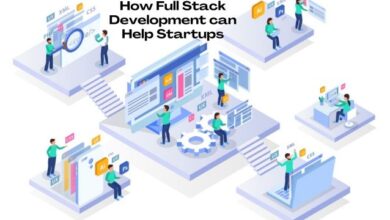Embracing Technology in Hospitality: Innovations and Trends Shaping the Future

Embracing technology in hospitality has significantly enhanced guest experiences, from streamlined booking processes to interactive in-room amenities, ushering in a new era of seamless and innovative services.
In today’s evolving world, technology is an integral part of our daily lives, transforming various industries and sectors, including hospitality. Digitalization and innovative technologies have revolutionized how we experience hospitality services, from booking accommodations to personalized guest experiences.
The hospitality industry is embracing technology like never before, leveraging its power to enhance operational efficiency, improve customer satisfaction, and stay ahead in a competitive market.
This article explores the exciting innovations and trends shaping the future of hospitality, highlighting how technology is driving positive change and redefining the guest experience.
Mobile Check-in and Keyless Entry
Mobile check-in allows guests to confirm their booking and check-in remotely using their smartphones, reducing waiting times and enhancing convenience. Keyless entry systems utilize mobile apps or Bluetooth technology to turn guests’ smartphones into room keys, eliminating the need for physical key cards or traditional check-in processes.
Guest Experience Apps
A dedicated mobile app for your hotel offers a wide range of services and features to enhance the guest experience. Everything from room service orders, spa bookings, housekeeping requests, local recommendations, loyalty program information, personalized offers, and more allows guests to get almost everything they need right from their phones. Apps serve as a one-stop solution for guests to access hotel services and information conveniently.
In-room Technology
Smart devices and automation systems in rooms allow guests to control various aspects of their environment. They can adjust room temperature, lighting, curtains, and entertainment systems through a central control panel or voice commands, providing personalized comfort and convenience. Integration with voice assistants like Amazon Alexa or Google Assistant allows seamless voice control in an accessible format.
Contactless Payments

Contactless payment solutions enable guests to make payments without physical contact. The world is going cashless, and if you haven’t updated to a contactless system, your business should keep up with the times. Mobile wallets like Apple Pay, Google Pay, or Samsung Pay, as well as QR codes and NFC-enabled payment systems, provide secure and convenient options for guests to settle their bills, reducing the reliance on cash and physical cards.
AI-powered Chatbots
You can integrate AI-powered chatbots into your hotel’s website or mobile app to instantly respond to customer inquiries and assist with basic requests. Chatbots utilize natural language processing (NLP) to understand and respond to guest queries, offer recommendations, provide information about hotel services, and handle simple tasks like making reservations or requesting amenities. They can operate 24/7, improving customer service response times and reducing the workload on your staff.
Data Analytics and Personalization
Utilizing data analytics tools through hotel management software offers valuable insights into guest preferences, behavior patterns, and feedback. You can use the data to personalize guest experiences, offer targeted promotions and recommendations, and tailor services to individual needs. For example, analyzing guest preferences and booking history can help customize room amenities or suggest personalized local activities for your guests.
Internet of Things (IoT) for Operations
IoT devices can optimize operational efficiency for your hospitality business. For instance, IoT sensors can monitor energy usage, occupancy levels, and maintenance requirements. You can analyze the data to identify energy-saving opportunities, detect patterns in guest behavior, and predict maintenance issues. It enables proactive decision-making, reduces costs, and improves sustainability.
Virtual Reality (VR) and Augmented Reality (AR)
VR and AR technologies provide immersive experiences for guests. VR can allow potential guests to take virtual tours of rooms, event spaces, and amenities, so they can make informed decisions about their reservations before booking. AR enhances the on-site experience by overlaying useful information, such as directions or historical facts, onto real-world views. Both technologies contribute to an engaging and interactive guest experience.
Online Reputation Management
Managing your online reputation is increasingly essential as social media becomes more prevalent. People often use various apps and websites, like Yelp, Instagram, and TikTok, as search engines to find the services they want. An unmanaged and unmonitored online presence can harm your business and cause you to miss out on business opportunities.
Reputation management tools and social listening platforms help hotels monitor and respond to online reviews and social media conversations. These tools provide insights into guest feedback, sentiment, and emerging trends. By promptly responding to reviews and engaging with guests, hotels can address concerns, resolve issues, and maintain a positive brand image.
Sustainability Solutions
Embracing eco-friendly technologies and practices is increasingly important in the hospitality industry. Hotels can implement energy-efficient lighting systems, smart thermostats to regulate temperature, water-saving fixtures, waste management systems, and initiatives to promote recycling and conservation. These sustainability solutions not only reduce environmental impact but also resonate with guests who prioritize sustainability when choosing accommodations.
Social Media Integration
Integrating social media platforms into your hotel’s operations can expand your reach, enhance brand visibility, and engage with potential guests. Social media can be utilized for targeted advertising, sharing updates about events and promotions, responding to guest inquiries and reviews, and leveraging user-generated content to showcase the hotel’s experience.
As we mentioned before, social media is crucial to managing and monitoring your business, but it also opens you up to new opportunities and allows you to engage new audiences. By integrating social media into your business operations, you can find opportunities to partner with other local businesses, highlight guest reviews, and develop your business persona.
Robotic Process Automation (RPA)
RPA technology can automate repetitive and manual tasks such as data entry, inventory management, invoice processing, and guest communication. You can integrate an API system to enhance security and protect your business’s sensitive data. These systems do wonders at reducing human error and freeing up staff time while reducing costs. RPA improves operational efficiency and allows employees to focus on delivering personalized service to guests.
Tech and Hospitality
Embracing technology is no longer an option but a necessity for businesses in this industry. The integration of advanced technologies, such as artificial intelligence, virtual reality, and smart devices, holds immense potential for enhancing operational efficiency, personalizing guest experiences, and streamlining business processes.
By leveraging technology, hospitality businesses can stay relevant, adapt to changing customer expectations, and create a seamless and memorable guest journey.







